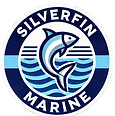
Silverfin Marine
Technical Management
Ship technical management involves the comprehensive oversight, maintenance, and operational control of vessels to ensure their seaworthiness, regulatory compliance, and optimal efficiency. It encompasses a wide range of responsibilities critical to the safe and efficient operation of ships, including:
-
Planned Maintenance & Repairs – Implementing scheduled maintenance programs, coordinating dry-docking, and overseeing necessary repairs to maintain vessel integrity and performance.
-
Regulatory Compliance & Certification – Ensuring compliance with international maritime regulations, such as SOLAS, MARPOL, and ISM Code, as well as classification society requirements.
-
Crew Management & Training – Coordinating with crewing departments to ensure qualified personnel are onboard and conducting training programs for safe and efficient vessel operations.
-
Performance Monitoring & Optimization – Utilizing data-driven approaches to monitor fuel efficiency, emissions, and overall vessel performance, implementing measures to enhance operational efficiency.
-
Safety & Risk Management – Identifying potential risks, implementing safety protocols, and conducting regular inspections to ensure a safe working environment onboard.
-
Emergency & Crisis Response – Developing and executing emergency preparedness plans, including responding to machinery failures, accidents, or environmental hazards.
Effective ship technical management ensures vessels operate reliably, meet industry standards, and achieve long-term operational sustainability. With advancements in digitalization and predictive maintenance, modern technical management is evolving to enhance efficiency, reduce downtime, and improve fleet performance.